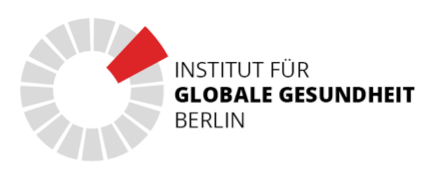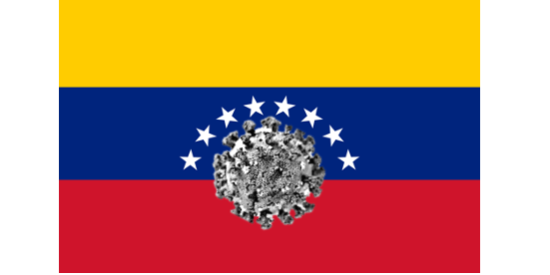COVID-19 in Venezuela: the least of the worries.
The current pandemic is affecting the global economy and will drastically change the way people behave from now on, from individual to international perspectives. Through the last four months, diverse socio-economic, and health actions implemented by governments worldwide had shown their results, and some of those countries are starting to feel hope after the crisis while things are slowly coming “back to normal”. Sadly that is not the case in Venezuela, where a feeling of „normality“ seems to be utopic.
Quarantine measures were implemented in the country on March 16th, two days after the first positive case was detected. This seemed like a quick response, but Venezuela was the last country of the South American region to officially report a positive case (1). As neighbouring countries were fighting the virus at that time, it is very likely that the virus was already spreading in Venezuela much earlier, too. Also, other measures like flight suspensions, closing of borders, social distancing, quarantine, and mandatory use of masks in public spaces were ordered. But are those measures working in the context of Venezuela?
Looking at the total numbers of cases (1818) and the total deaths (18) (2), one could say that the measures are working and that the virus has been contained, at least in comparison to other countries. But the reality goes further beyond these official records. There is no doubt that the lack of testing coverage and case registrations could explain those relatively low numbers, but there are two main hypotheses that could describe what is coming. The first one, and least probable, is that the pandemic cycle is concluding faster than in the rest of the world. The second one, and most probable, is that the exponential expansion period has not even started yet, but can be expected in the upcoming weeks. The latter is supported by the fact that the current number of cases is rapidly increasing, with 156 new cases in the last 24 hours (2,3).
For many years Venezuela has suffered severe public health problems, the health system in the country was already in precarious conditions with less than half of the hospitalization beds in comparison to the regional average, and the lowest health spending in Latin America with only 4.4% of the GDP (4). Across the entire health infrastructure the absence or severe failure of diagnostic systems, medicines, health workers, vaccines, prevention programs, and other general and essential health supplies is the rule. Also, it is evident that most public hospitals not only face a massive shortage of masks and personal protective equipment, they are also struggling with an irregular supply of basic services like running water, waste disposal, electricity and even soap. Under these conditions infections can easily spread and diseases like malaria and tuberculosis, which had been succesfully pushed backed already, have reemerged and case numbers have quickly skyrocketed (5).
Effects of the Pandemic in Venezuela
Now with the pandemic, all existing public health issues were exponentially aggravated. Despite the declaration of a national health emergency by the regime, the overall response of the country´s health system remains extremely limited with virtually no capability to develop an effective public health plan for testing, screening or contact tracing measures, and even fewer resources to treat the rising numbers of severe cases, due to the already collapsing health system.
The financial situation of Venezuela has been critical for a very long time. The economic collapse included one of the longest and highest hyperinflation periods in history, with no signs of improvement. A depleted export capacity, reduced oil production, and low oil prices mixed with the international economic sanctions due to corruption, criminal activities, and illegitimacy of the Venezuelan regime created an economic context, in which a monthly minimum wage is just enough to afford about 2% of the basic nutritional needs (6). This forces the vast majority of Venezuelans to depend on daily informal commercial activates and remittances in order to survive. The COVID-19 pandemic now arrives in a country where 92% of the population does not have savings or economic capacity to cope with this unprecedented situation and in which the regime is unable to create any financial response plans. Therefore, social distancing and confinement measures are even more deadly than the virus itself.
Public services, electricity, water, and fuel (domestic gas and gasoline) have been rationed by the regime for years, a situation worsening every day. In most parts of the country it takes several days of waiting in lines to refuel a car or a domestic gas tank. Frequent power and water shortages last for days or even weeks. The pandemic context exacerbated this harmful situation, including the collapse of the water and power supplies and an almost non-existent fuel provision, affecting not only the mobility in the whole country (7).
Food security in Venezuela has already been heavily and chronically compromised and a long history of migration has intensified over the years, causing one of the biggest humanitarian and nutritional crisis in the regions, with now more than 5 million migrants representing 17% of the population in the country (8). The current paralysis of the already weak economic sector is directly affecting the agricultural sector, too. The lack of fuel makes farmers unable to move their productions to the markets which causes huge losses in the agricultural and fishing sectors. In addition, the lack of seeds, infrastructure, fuel, and decreased farm activities are threatening the upcoming harvest season, very likely leading to a further decline of the already diminished local food production (9). This sentences Venezuelans to an even lower level of food availability and access, decreasing their caloric and protein intake to famine levels. Last but not least, the lack of functioning public institutions, growing criminality, and a state of anarchy promoted by the regime have now intensified. The pandemic is used as an excuse to increase social control, chasing health workers and journalists reporting about the situation and threatening civil society representatives protesting and demanding to respect and protect their basic rights (10,11).
Due to this terrible context and the severity of the humanitarian crisis, the country´s situation has been on the international agenda several times. While many foreign governments have discussed and promoted ways to improve the situation and to help Venezuelans, it is obvious that the only real hope lies in a fundamental change of the country´s political and economic model. Sadly, the COVID-19 pandemic forces the world to change priorities, leaving the Venezuelan people in a free fall of hyperinflation, famine, an unresponsive health system, and social decay combined with forced confinements in inhuman conditions. In sum, it is understandable that in this scenario, measures like washing hands regularly, social distancing, and confinement are rather difficult to follow. COVID-19 is the least of the worries for a population, which has already been fighting for its rights and struggling to survive for several years. The pandemic represents an additional problem now, further intensifying the overall suffering of the people and the international isolation of Venezuela. The low level of international investments, assistance and aid will most likely further decrease due to the pandemic, wiping away hopes for Venezuela to go “back to normal” ever again.
- Olmo (@BBCgolmo) GD. Cuán preparada está Venezuela para enfrentar el coronavirus después de confirmar sus dos primeros casos. BBC News Mundo [Internet]. 2020 Mar 13 [cited 2020 May 22]; Available from: https://www.bbc.com/mundo/noticias-america-latina-51876226
- Venezuela registra un fallecido y 156 casos de coronavirus en las últimas 24 horas #2Jun [Internet]. Efecto Cocuyo. 2020 [cited 2020 Jun 3]. Available from: https://efectococuyo.com/coronavirus/venezuela-registra-un-fallecido-y-156-casos-de-coronavirus-en-las-ultimas-24-horas-2jun/
- Red Agroalimentaria de Venezuela. Los Efectos En El Sector Agroalimentario De La Pandemia Covid 19 Y Las Medidas Adoptadas Para Combatirla. Venezuela: Red Agroalimentaria de Venezuela; 2020 May. (Informe Trimestral – Seguimiento de la Situación Agroalimentaria). Report No.: 2do.
- Informe-conjunto-del-estado-de-salud-nacional.pdf [Internet]. [cited 2020 May 22]. Available from: https://transparencia.org.ve/wp-content/uploads/2018/08/Informe-conjunto-del-estado-de-salud-nacional.pdf
- encuesta-covid19-07abril.pdf [Internet]. [cited 2020 May 22]. Available from: https://politikaucab.files.wordpress.com/2020/04/encuesta-covid19-07abril.pdf
- RESUMEN EJECUTIVO CBT FEB. 2020 WEB.pdf [Internet]. [cited 2020 May 24]. Available from: http://cenda.org.ve/fotos_not/pdf/RESUMEN%20EJECUTIVO%20CBT%20FEB.%202020%20WEB.pdf
- Fuel Shortages during Covid-19 in Venezuela [Internet]. [cited 2020 May 24]. Available from: https://www.csis.org/analysis/fuel-shortages-during-covid-19-venezuela
- Venezuela PM. Migración venezolana alcanzó en enero los 5 millones de personas [Internet]. Proyecto Migración Venezuela. [cited 2020 May 24]. Available from: https://migravenezuela.com/web/articulo/migracion-venezolana-alcanzo-los-5-millones-de-personas/1691
- Info Agr vegetal 03 2020.pdf [Internet]. [cited 2020 May 24]. Available from: http://redagroalimentaria.website/Produccion%20Interna/Info%20Agr%20vegetal%2003%202020.pdf
- Redacción. Coronavirus en Venezuela: saqueos y protestas por el aumento de precios en los alimentos y la escasez de gasolina. BBC News Mundo [Internet]. 2020 Apr 27 [cited 2020 May 24]; Available from: https://www.bbc.com/mundo/noticias-america-latina-52446193
- Olmo (@BBCgolmo) GD. „Dijeron que habían recibido una llamada por coronavirus y me llevaron preso”: los periodistas y médicos detenidos en Venezuela en medio de la pandemia. BBC News Mundo [Internet]. 2020 Apr 28 [cited 2020 May 24]; Available from: https://www.bbc.com/mundo/noticias-america-latina-52450803
Author
Ernesto Javier Negrin Rangel
Ernesto Negrin, Venezuelan, raised in Altagracia de Orituco, a small town in the Guárico State located in the center of the country. Bachelor’s degree in Nutrition and Dietetics in 2008. Specialist’s degree in Clinical Nutrition in 2015 both from the Central University of Venezuela. Ernesto worked as a Clinical Nutritionist in the University Hospital of Caracas in Venezuela for 7 years, and in the “Carlos Andrade Marin” Hospital, of the Ecuadorian Institute of Social Security in Quito, Ecuador for 3 years. He is now based in Berlin concluding his Master Studies in International Health at Charité Universitätsmedizin Berlin.

